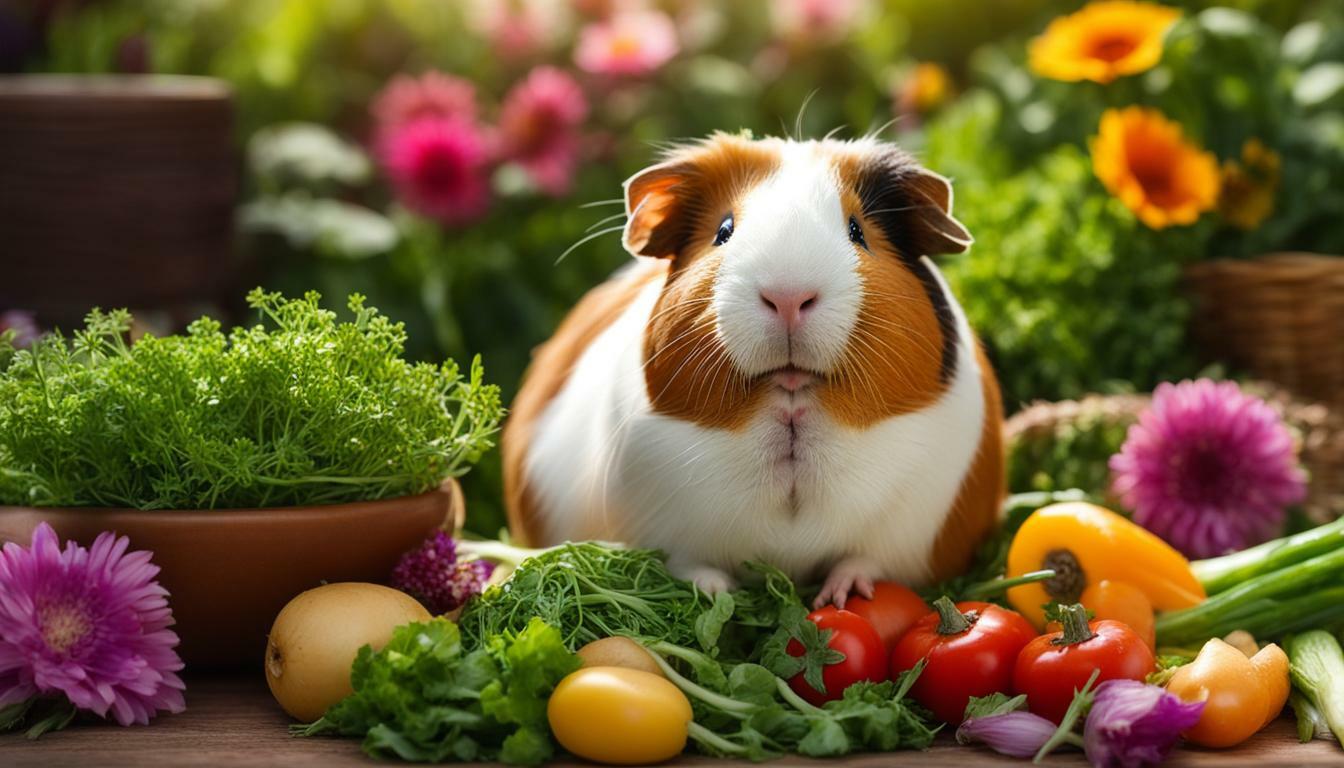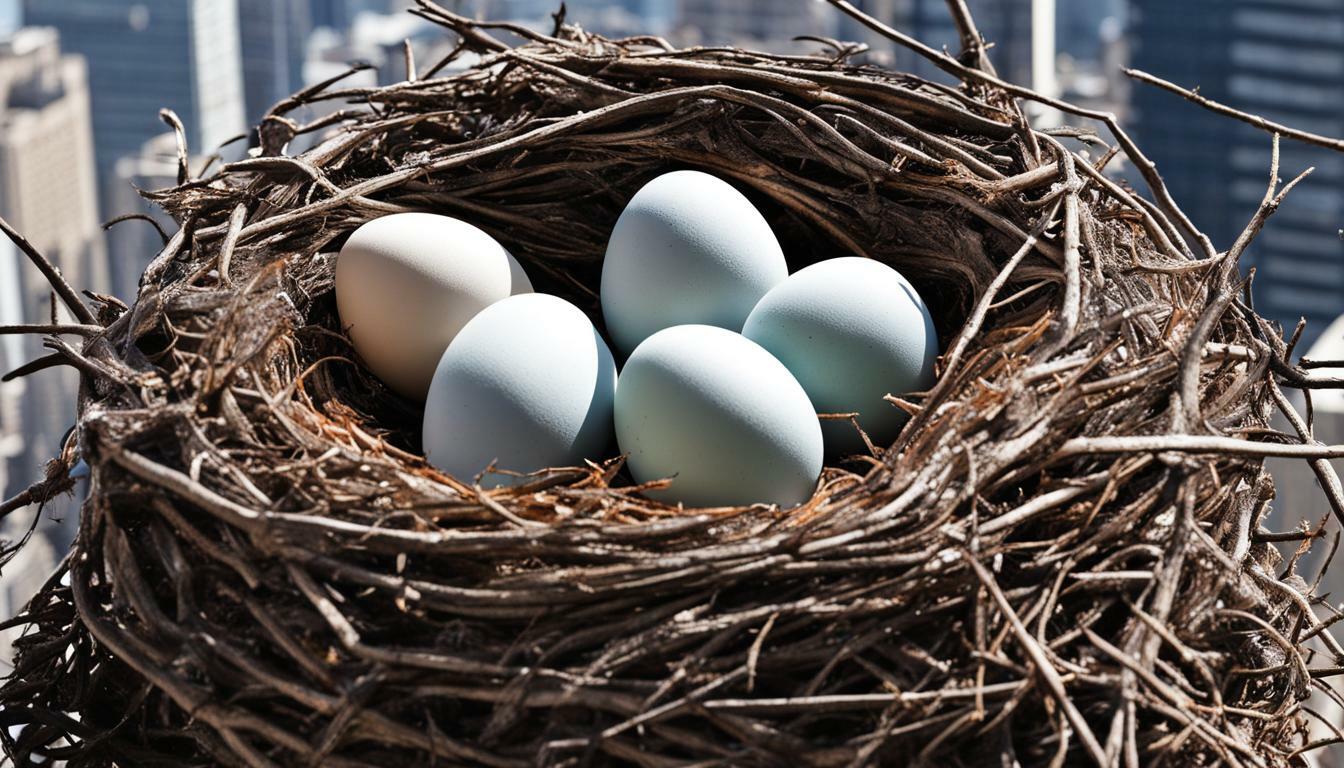How to Help an Underweight Guinea Pig Gain Weight: A Comprehensive Guide

Table of content:
- Signs Your Guinea Pig is Underweight
- Causes of Guinea Pig Being Underweight
- Ideal Guinea Pig Weight
- Increasing Calories with Diet Changes
- Feeding Technique Tips
- Providing Proper Nutrition
- Ideal Feeding Schedule
- Other Tips for Weight Gain
- Signs of Progress in Weight Gain
- Potential Complications of Underweight Guinea Pigs
- When to Seek Veterinary Help
- Preventing Guinea Pigs From Becoming Underweight
- Final Thoughts
If your guinea pig is underweight, it’s important to take action to help them gain weight and become healthy. An underweight guinea pig may have health problems or not be getting proper nutrition. By making some changes to their diet and care, you can help an underweight guinea pig thrive.
Signs Your Guinea Pig is Underweight
How can you tell if your guinea pig is underweight? Here are some signs:
- Prominent hip or spine bones
- Ribs are visible and easy to feel
- Sunken abdomen or sides
- Lack of energy or lethargy
- Loss of muscle mass
- Poor coat condition
If your guinea pig is displaying any of these signs, it likely needs to gain weight. The first step is to schedule a veterinarian visit to rule out any underlying health issues.
Causes of Guinea Pig Being Underweight
There are several potential reasons a guinea pig may be underweight:
- Inadequate diet – Not eating enough calories or proper nutrients
- Dental problems – Pain or issues chewing and eating
- Gastrointestinal issues – Difficulty digesting or absorbing food
- Parasites – Worms or other parasites taking nutrients
- Old age – Less able to efficiently utilize calories
- Stress – Appetite loss from environmental stressors
- Disease – Illnesses causing weight loss like cancer
Getting a thorough veterinary exam can identify if any disease or medical condition is the culprit. Parasites are also commonly to blame.
Ideal Guinea Pig Weight
What is a healthy weight for a guinea pig? The ideal weight depends on breed, age, and frame size.
On average, a healthy guinea pig weighs:
- 1.5 to 2.5 lbs (700g to 1200g) for sows
- 2 to 2.5 lbs (900g to 1200g) for boars
Weigh your guinea pig regularly to monitor their weight. Use a kitchen or small pet scale once a week. Record weights to track progress over time.
Increasing Calories with Diet Changes
The main way to help an underweight guinea pig gain weight is to increase their calorie intake. Making the following diet changes can up your guinea pig’s daily calories:
- Offer unlimited grass hay. Grass hay like timothy or orchard grass should make up the bulk of a guinea pig diet. Full access to hay ensures they can eat plenty.
- Feed high-calorie pellets. Switch to an alfalfa-based or senior guinea pig pellet formula, which is higher in calories and protein than standard pellets.
- Give veggie treats. calories and nutrients. Some great options are carrots, kale, squash, and sweet peppers.
- Add healthy fats. A few seeds or nuts, like pumpkin or flax seeds, provide beneficial fats.
- Try weight gain supplements. Products like Critical Care Fine Grind or Emeraid Herbivore can add calories when mixed with water into a slurry.
- Free feed. Allow your guinea pig constant access to hay and pellets in excess, so they can graze and eat more.
Pay attention to if your guinea pig seems to dislike any diet changes. Some may not take to new foods right away. Introduce new items slowly in combination with favored ones.
Feeding Technique Tips
How you feed an underweight guinea pig can sometimes stimulate its appetite and get it to eat more. Here are helpful feeding techniques:
- Hand feeds small amounts of veggies or hay, which encourages them to eat.
- Add savory spices like cilantro, parsley, or oregano to food to increase palatability.
- Mix in crushed pellets or treats into veggies to create more interesting textures.
- Offer freshly harvested hay, which is more enticing than packaged hay.
- Use shallow ceramic bowls, which guinea pigs prefer over deep bowls.
- Refill food bowls 2-3 times a day to keep things fresh.
- Position multiple hay racks around their living space to always have access.
- Scatter hay and pellets around their enclosure so they forage for food.
Finding tricks that entice your individual guinea pig to eat more will go a long way in their weight gain journey.
Providing Proper Nutrition
Gaining weight requires not just more calories, but proper nutrition. Make sure your underweight guinea pig’s increased diet includes:
- Vitamin C – From Oxbow C tablets, bell peppers, broccoli, and kiwi. Prevents scurvy.
- Calcium – Through alfalfa hay, kale, and parsley. Needed for bone health.
- Vitamin D – From time outdoors in sunlight or Oxbow Sunshine Factor tablets. Important for calcium absorption.
- Fiber – From grass hays like timothy. Keeps digestion regular.
- Protein – From pellets, legumes, wheat grass. Important for maintaining muscle mass.
A vitamin supplement 2-3 times a week assists in getting adequate nutrition. But veggies, hay, and pellets should make up the bulk of their diet.
Ideal Feeding Schedule
Structuring a feeding schedule helps ensure your guinea pig eats enough each day. Here is a schedule to follow:
- 7-8 AM – 1/4 cup pellets, heaping pile of hay
- 10 AM – 1-2 cups chopped veggies
- 12 PM – More hay, a small piece of fruit
- 3 PM – Small handful herb treats like cilantro or parsley
- 6 PM – 1/4 cup pellets, more hay
- 9 PM – Extra hay to munch overnight
- 24/7 – Unlimited access to grass hay
Adjust amounts based on your guinea pig. The key is ensuring hay is always available, and several calorie-dense meals and treats are fed daily.
Other Tips for Weight Gain
Along with diet, a few other tips can contribute to an underweight guinea pig gaining a healthy amount of weight:
- Give access to grass or outdoor time to graze and exercise.
- Minimize stressors like loud noises, bright lights, or isolation.
- Establish a consistent daily schedule for food and interaction.
- Weigh weekly and record progress. Adjust diet if weight goals aren’t met.
- Ask your veterinarian about probiotic paste to improve digestion.
- Rule out dental issues like overgrown teeth that prevent eating.
- Address parasite problems; get regular fecal tests done.
- Increase soft bedding and hides so they expend less energy.
With persistence and patience, your underweight guinea pig can pack on the ounces and reach a normal healthy weight again. Monitor their progress along the way and consult your exotic vet if you have any concerns.
Signs of Progress in Weight Gain
How long it takes for an underweight guinea pig to gain weight depends on their age, original weight, and reason for being underweight. On average, aim for a guinea pig to gain 4-8 ounces per month.
Signs your underweight guinea pig is on the right track:
- Gradual weekly weight gain on the scale
- Improved energy levels and popcorning
- Full and rounded abdomen when viewed from above
- Ribs and spine not prominently visible
- Muscle mass feels thicker
- Brighter eyes and coat
- Increased appetite and eating more treats
- Needed less prompting and hand-feeding
See your vet if you don’t see steady progress or your guinea pig seems to plateau. An adjustment to diet or further medical treatment may be needed. With your diligent help, they can get back to a healthy normal weight.
Potential Complications of Underweight Guinea Pigs
If an underweight guinea pig doesn’t start gaining weight, complications can arise. Being underweight long-term leads to:
- Muscle wasting and weakness
- Greater risk of infectious disease
- Poor wound healing
- Higher anesthetic risk if surgery needed
- Dental issues like overgrown teeth
- Reduced quality of life
Guinea pigs in a catabolic state will eventually suffer organ damage. Their body starts breaking down fat and muscle stores for energy. Intestinal villi also shorten, limiting nutrient absorption.
Don’t delay in getting an underweight guinea pig on track for weight gain. The sooner their health is addressed, the better the outcome will be.
When to Seek Veterinary Help
Schedule an appointment with your exotic veterinarian if your guinea pig:
- Is rapidly or progressively losing weight
- Has no clear underlying cause for being underweight
- Does not improve with diet changes after 2-4 weeks
- Stops eating or seems depressed
- Shows signs of illness like lethargy or diarrhea
- Loses more than 10% of body weight quickly
A full veterinary workup can identify if any disease is causing their low weight. Treatment of the underlying problem is key. Your vet may prescribe medications, diet supplements, or other therapies to get your guinea pig healthy again.
Preventing Guinea Pigs From Becoming Underweight
The best way to handle underweight guinea pigs is to prevent it from happening in the first place. Here are some prevention tips:
- Weigh monthly to catch weight loss early.
- Feed a balanced diet with unlimited hay.
- Avoid diet changes or new foods.
- Watch for signs of dental issues or illness.
- Keep guinea pigs in pairs for companionship.
- Give floor time for exercise each day.
- Provide places to hide to lower stress.
- Keep the cage clean, dry, and draft-free.
- Schedule annual vet exams to catch health issues early.
With excellent ongoing care, your guinea pig can maintain a healthy weight throughout their life.
Final Thoughts
Caring for an underweight guinea pig requires diligence and patience. With a higher calorie diet, weight gain supplements, counting calories, and veterinary oversight, they can safely add body mass. Monitor closely for complications and be prepared to make diet tweaks. The reward is seeing your guinea pig fill out and regain their health.
Welcome. I’m Adreena Shanum, the proud owner of this website, and I am incredibly passionate about animals, especially poultry. I founded adreenapets.com as a labor of love, stemming from my desire to share my knowledge and experiences with poultry enthusiasts worldwide.




